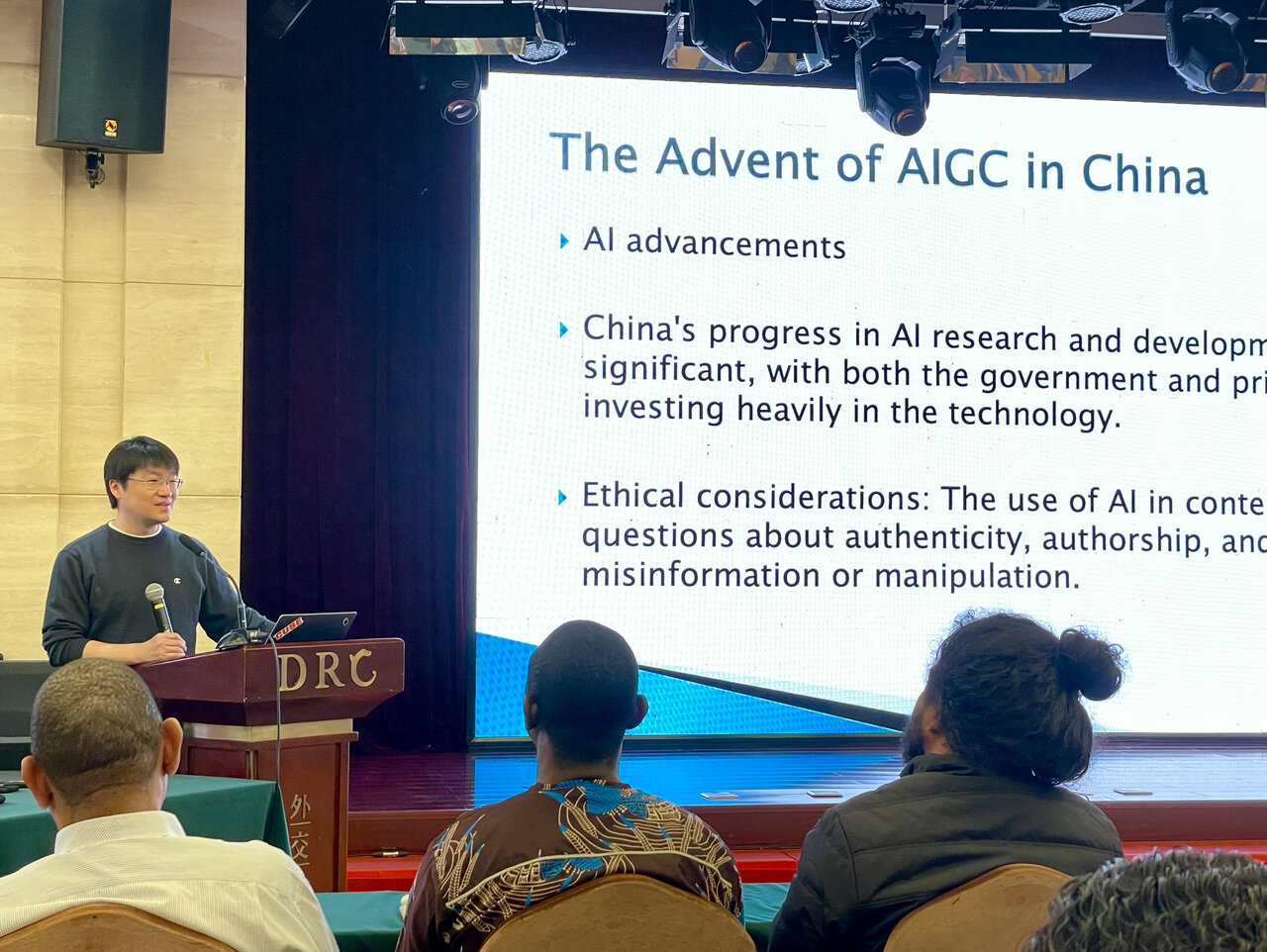CIPCC holds lecture on Chinese media sector for world’s journalists

BEIJING- China International Press Communication Center (CIPCC) held a lecture titled “From PGC to AIGC: Technology-driven Content Production Evolution in Chinese Media Sector and Its Social Influences” for the journalists from all around the world.
The lecture by Professor Di Zhang reviewed the development of professional generated content, user generated content and artificial intelligence content in the context of technological developments and social context in China. It also explored the socio-political consequences of new media in China.
Professor Di Zhang holds a faculty position at the School of Journalism and Communication at Renmin University of China (RUC). He earned his doctoral degree in mass communication from the S.I. Newhouse School of Public Communications at Syracuse University. His research focuses on public relations, health communication, and international communication. Prior to his academic career, he worked as a reporter for the business desk of China Daily and the English channel of China Central Television.
The first part of the professor’s lecture was published in the Tehran Times yesterday, and now the following is the second part.
In another part of his lecture, Professor Di Zhang expounded upon issues such as how Chinese society shaped China’s social media, and how new media influence society, as well as the political impacts of social media.
He then mentioned the Adevent of AIGC (artificial intelligence generated content) in China as follows.
- AI advancements
- China's progress in AI research and development has been significant, with both the government and private sector investing heavily in the technology.
- Ethical considerations: The use of AI in content creation raises questions about authenticity, authorship, and the potential for misinformation or manipulation.
He went on to name examples of AIGC in the Chinese media center as:
- Xinhua News Agency's AI anchor: In 2018, Xinhua introduced the world's first AI news anchor, capable of delivering news reports with synthesized speech and lifelike facial expressions.
- Toutiao and Tmall's AI-generated content: Platforms like Toutiao (a news aggregation app) and Tmall (an e-commerce platform) utilize AI algorithms to generate personalized content recommendations and product descriptions.
- AI-generated poetry and literature: Chinese researchers have developed AI algorithms capable of generating poetry and literature, some of which have been published in literary magazines and anthologies.
- AI-generated advertising: Companies have begun using AI generated content for advertising campaigns, creating personalized ads that resonate with target audiences.
- Leading Chinese marketing agency group BlueFocus announced in April: it will “fully and indefinitely” end the outsourcing of creative design, copywriting, planning and programming, and interim employment.
It should be noted that China International Press Communication Center (CIPCC) hosted this lecture for a number of foreign journalists in Beijing on Sunday morning.
CIPCC, under the China Public Diplomacy Association (CPDA), has initiated a program to build a platform for the media from countries around the world, especially developing countries, to observe China and study development in this country.
The program aimed at media exchange was halted in 2020 and 2021 due to the Covid-19 epidemic.
In each edition of the program, journalists from all around the world gather together to get familiar with the modern China and exchange their experiences in the field of journalism.
In 2024 edition of the program, scheduled to be held from late February until late June, over 100 journalists from more than 90 countries are participating.
Culled from Tehran Times

